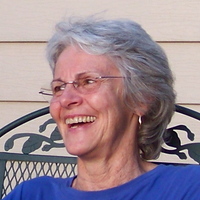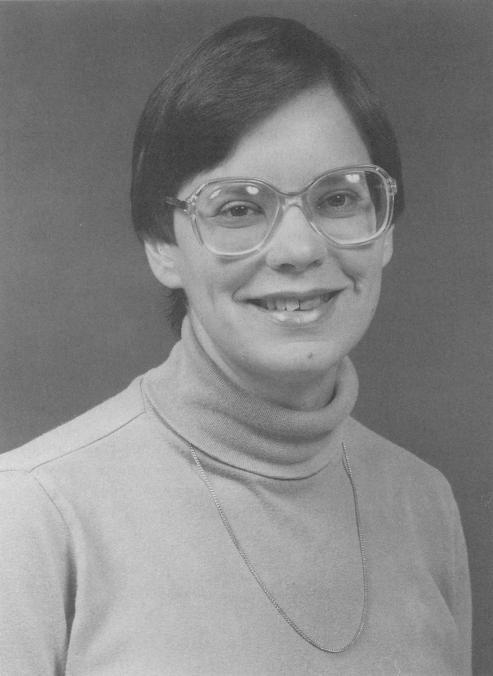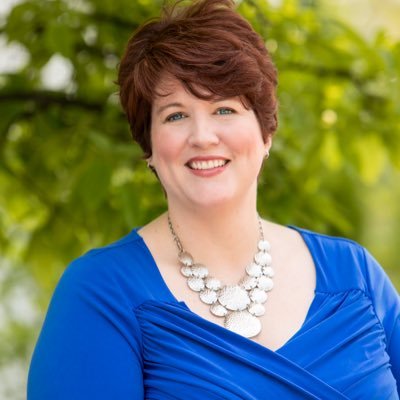Testimonials
Select any of the following names to read testimonials from selected alumni and friends of the Public History program at Loyola.
Joanne Murray (Public History MA '90)

Joanne Murray
Historian and Director at The Legacy Center, College of Medicine, Drexel University
"Even at that relatively early stage of Loyola's Public History program, my training was thorough and experiential. Course work included writing a National Register of Historic Places nomination. As part of a historic preservation project, and in partnership with the Chicago Maritime Society, students documented the history of historic lighthouses on the Illinois shore of Lake Michigan. The lighthouse that my team nominated was accepted for the register, and that success was born of the strength of the program and its faculty leaders. We conducted research at the National Archives, collected data at the abandoned lighthouse, and contributed to and co-edited Historic Lighthouses and Navigational Aids of the Illinois Shore of Lake Michigan, a report to the Illinois Historic Preservation Agency. Though still in school, my team of three had already taken part in a significant public history effort. This is just one example of many practical assignments based in solid teaching and discussion. Other projects focused on fundraising, exhibition design/curation, museum education, oral histories, archival work, and media development. Additionally, practicums and internships were required, with placement guided by program faculty.
“With the substantial and required study of American history alongside public history learning, Loyola's program was well-balanced, ensuring the right skill sets and content knowledge necessary for further growth. One month before graduation, I was offered a project position at the American Medical Association, working with their Historic Health Fraud Archives. Three months later, I began work at the Chicago Historical Society (now the Chicago History Museum), which was due, in no small part, to the internship I had done there through Loyola's Public History program. Seven years and some promotions later, I left Chicago for my current public history position, heading up the Legacy Center at Drexel University in Philadelphia."
Rebecca Conard, PhD
Rebecca Conard, PhD
Professor Emeritus and Former Public History Director, Middle Tennessee State University
"Not only are many program alums currently active in NCPH, but their career paths represent a wide swath of professional practice in museum management and education, archives and records management, historic preservation, and not-for-profit management. Loyola alums have been putting history to work throughout the Midwest and beyond, from the Arab American National Museum in Dearborn, Michigan, to the Illinois Humanities Council and the Wisconsin State Historical Society, to the USS Constitution Museum in Boston, and the National Park Service in Washington, D.C. Other Loyola alums are at work training future public historians at the University of Illinois, Springfield, Southern Illinois University, North Park University, Chicago, the University of Southern Indiana, Northern Kentucky University, the University of Nevada, Las Vegas, and the University of New Mexico.
“A combination of solid scholarship, attention to ethics and reflective practice, and faculty-guided professional development have contributed to Loyola's strength in public history education. The program builds on the History Department's strong suits in nineteenth and twentieth century history; in urban, social, and cultural history; and in women's and gender studies. In addition to publishing scholarly works in their respective fields of traditional history, professors Karamanski and Mooney-Melvin have drawn upon their own experiences to publish a combined total of eight articles on public history pedagogy and practice. Ted also was instrumental in developing NCPH's initial "Ethical Guidelines for [Public] Historians" (1985), a document that addressed the particular responsibilities of ethics in practice in addition to ethics in research and scholarship, and then edited Ethics and Public History: An Anthology (1990). In a purposeful manner, they have integrated ethics and reflective practice into the curriculum and thereby aligned the public history program with Loyola's Jesuit mission, which stresses service to the community to make a difference. Indeed, Ted and Pat have taken their students into Chicagoland many times over the past four decades to conduct public history research projects. Faculty- directed field projects have resulted in a long list of museum exhibits, interpretive kiosks, oral history collections, historic resource studies, historical context studies, neighborhood histories, walking tour brochures, visitor studies and evaluations, and other products for institutions that reach broad public audiences, including the Chicago History Museum, the Newberry Library, the Chicago Maritime Museum, and the Cook County Forest Preserve District.”

Barbara J. Howe, PhD

Barbara J. Howe, PhD
Founding Director, West Virginia University Public History Program, 1980-2000
“Loyola's was the first public history PhD program in North America and has a combined MA/MLIS program with Dominican University. Few universities can easily cooperate with another institution to offer joint programs. The Loyola program has a rigorous curriculum at the MA level that includes an interesting portfolio requirement requiring students to compile their work in a way that will help their application for their future careers. I'm also intrigued by the History 410: Professional Lives of Historians course that reflects the program's focus on issues related to ethical practice that helps students meet the program's goal of exposing students to the "professional and ethical dimensions of public history." Loyola's faculty were involved in the early development of the code of ethics for public historians at a time when we were still trying to show our colleagues in the academy that we were doing good history, just not in a classroom. This culminated, at the time, for NCPH, with the winter 1986 special issue of The Public Historian on "Ethics and the Public Historian" that Dr. Karamanski edited. Loyola also has an impressive record of placing its graduates in positions reflecting the diversity of public history and spreading Loyola's reputation around the country. The application includes representative positions in not-for-profit management, museums, historic preservation, archives and records management, and public history education. Loyola graduates are teaching public history in Illinois, Kentucky, Las Vegas, and New Mexico. By posting student testimonials on its web site and hosting reunions each year at NCPH, Loyola has built a community of alumni/ae that provides examples to current students and helps them network with possible future employers. They are also active members of NCPH, the American Association for State and Local History, and the National Collaborative for Women's History Sites, among other professional organizations."
Kelley H. Szany (Public History MA, '02)
Kelley H. Szany, MA
Vice President of Education and Exhibitions, Illinois Holocaust Museum and Education Center
“My path of learning during my time at Loyola’s Public History program provided me with the skills and experiences that now have defined my nearly 18-year museum career. As a passionate museum professional, educator, and successful leader of programs and people, I have been able to touch nearly every major area of museum operations, which would not have been possible if it was not for my studies in Public History. I gained a rich understanding of the intersecting orbits of innovative programming, relationship building, impactful exhibits, philanthropy, and the vital role that a strong staff, Board, and community stakeholders play in driving a purposeful institution.
“When I began my career at Illinois Holocaust Museum & Education Center, I had the confidence to work toward the expansion of our educational mission and work. Soon I was part of an eight member staff team transitioning an organization from a 5,000 sq. to 65,000 sq. foot museum and education center. Today, as the second largest Holocaust museum in the country, I help lead the presentation of world-class exhibitions, education services for students and teachers, and public programming. I have helped to grow the museum' s national reputation, expand its audiences, and push artistic and programmatic boundaries that engage a diverse audience and provide a forum for open dialogue about how to improve our world.”
Patrick K. Moore, PhD
Patrick K. Moore, PhD
Director at New Mexico Historic Sites; Chair of History and Heritage, New Mexico Department of Cultural Affairs
“It is within this context that Loyola Chicago rises to a new level of recognition. While there are unquestionably other programs who have continued to remain active within the discipline, Loyola's approach has remained deliberate in crafting its program, adapting to new disciplinary needs, recruiting diverse students, and recognizing the changing professional demands of employers for its students. Since its emergence in 1980, at the outset of the discipline as a defined field, the program has graduated dozens of master's students and completed an equally impressive number of projects. Recognizing the need to incorporate a PhD field within the Loyola History Department, the public history program began its PhD joint program in 1998 and continues to thrive as a leader in public history training to the present. What makes Loyola truly distinctive, however, is ability to identify, nurture, and retain exceptional faculty to provide a continuum of disciplinary expertise. Only through this could the program achieve their previous successes and assure a sustainable footing for the future.”
